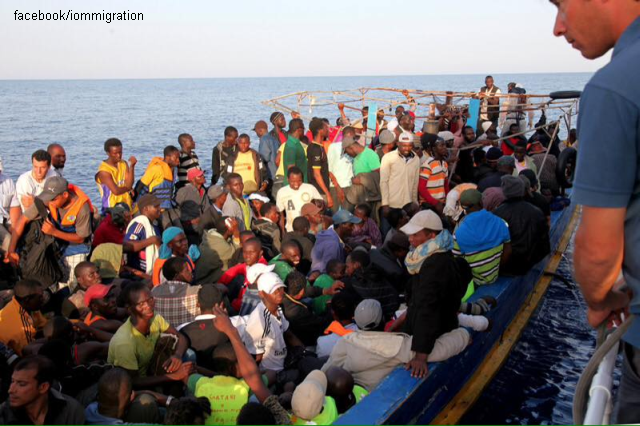Immigration: Why a Global Approach is Needed
Europe ought to do more than assign migrant quotas, says Romanian FM Bogdan Aurescu

Corina Cristea, 02.09.2015, 13:50
More than 350,000 people have risked their lives in the first 8 months of the year trying to cross the Mediterranean into Europe, and nearly 2,700 died during these attempts, the International Organisation for Migration has announced this week. Most immigrants reach Greece and Italy, on vessels coming from Libya, and then move on towards Western Europe via the West Balkans. Some of them come from conflict-ridden countries like Syria and Afghanistan, and stand high chances to be accepted as refugees. Others try to get into Europe for economic reasons, and they risk being deported to their countries of origin.
This is the alarming state of affairs that the decision makers in Brussels are trying to resolve. The drama of hundreds of thousands of people who risk everything in order to get away from conflicts or to make a decent living has come to question certain aspects related to the Schengen area, while also generating scenarios in which this inflow is seen as an organised Muslim invasion into the heart of Europe.
The European Commission announced that it would make new proposals as to how to tackle migrant trafficking networks and to solve the issue of relocating the immigrants accepted as refugees, and that the EU member countries that will host them will have access to special funding. Here is Commissioner for Regional Policy, Corina Cretu:
Corina Cretu: “I am sure that all member states will come up with clear analyses of the extent to which they are affected by this migration wave, but obviously member countries must file applications if they need European money.
The migration issue is also one of the main topics approached in the annual meeting of the Romanian diplomacy, held in Bucharest. Foreign Minister Bogdan Aurescu believes this is a challenge that requires a cohesive response:
Bogdan Aurescu: “I believe we need to find solutions to tackle the migration issue at its core, that is, in the countries of origin as well. Measures like assigning migrant quotas to each European country are not enough. Of course, this is an open debate. But it is important for us to go to the root of the problems, namely the instability on the other side of our southern borders, terrorism, the vulnerability of the states in that region. These are challenges that need to be answered as part of the various EU initiatives and actions.
Meanwhile, according to Mircea Mocanu, head of the Bucharest office of the International Organisation for Migration, although the number of migrants who choose to transit Romania on their way to Western Europe might increase substantially, Romania is unlikely to become a destination country.






























